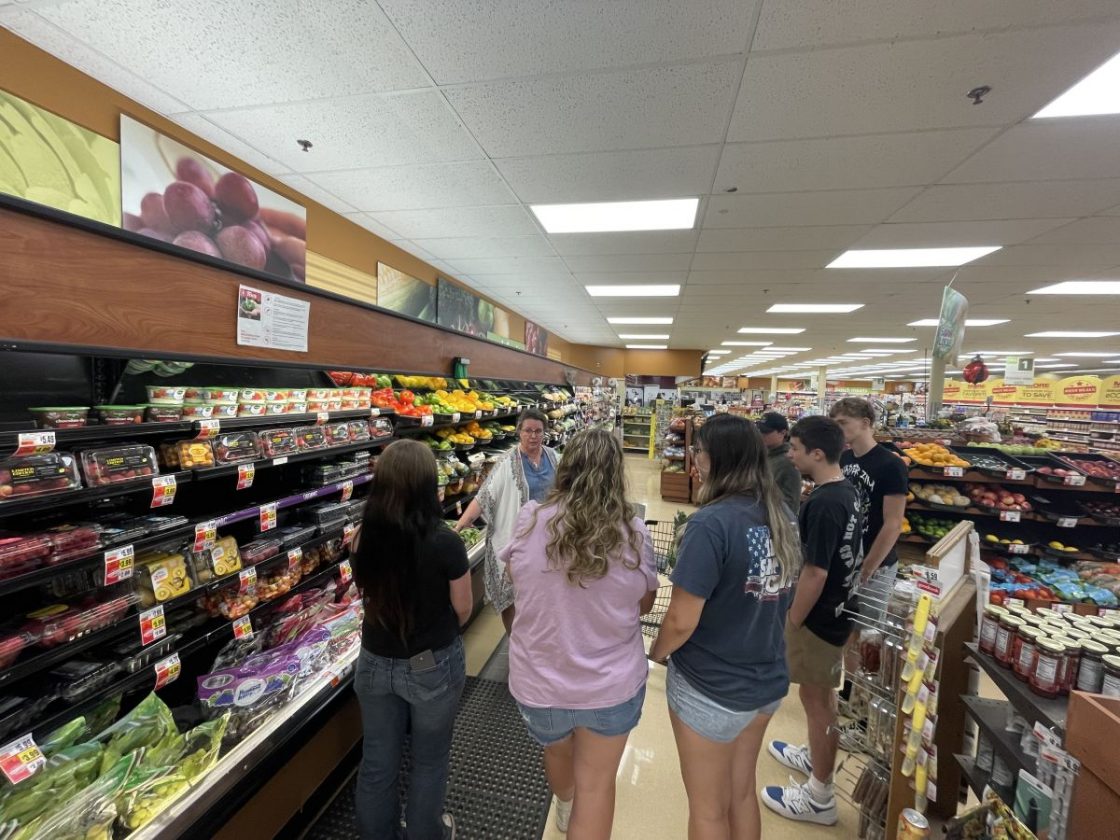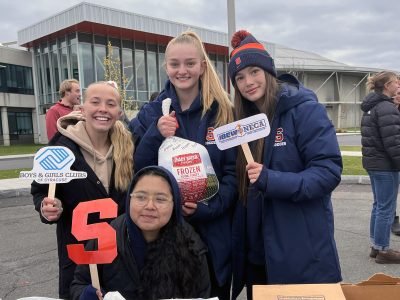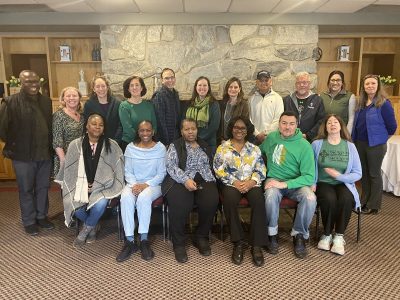It Takes a Village (and a University) to Support Rural Wellness, Recovery Efforts
A partnership between a Syracuse University faculty member and staff at the Camden Life Center in Camden, New York, is testing the success of a recovery café as an innovative method of delivering community-based addiction services and wellness programming in rural areas.
A recovery café is a non-clinical space for people overcoming trauma, addiction and other life challenges. It supports stability, healing and community involvement through educational programs and by connecting participants with vital services. The Recovery Café at the Camden Life Center is the first of its kind in New York State.
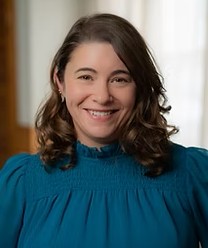
“The café is built on the belief that everyone is in recovery from something, whether that’s a mental health issue, substance use, grief or life transitions,” says center director Jessica Perusse, who is working with by Kenneth Marfilius, associate teaching professor of social work and faculty director of online programs and strategic initiatives in the School of Education. “We’re testing the idea that a safe, welcoming space, shared meals and small-group circles where participants discuss experiences can create healing spaces where stigma is replaced with connection.”
Discovering Needs
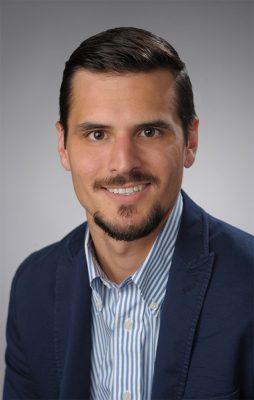
The idea began last fall with a needs assessment and program evaluation research project led by Marfilius. He conducted surveys and interviews to assess residents’ unmet social service needs, barriers to care, effects of trauma on behavioral health and challenges rural environments present to service providers. Marfilius also evaluated the center’s existing programming, and after analyzing program participants’ responses, made recommendations for enhancing current offerings and filling gaps in desired services. These included adding staff, increasing training, boosting transportation, expanding programs on housing, mental health and peer support services and improving community engagement.
In January, a $839,000 grant from the Mother Cabrini Health Foundation fast-tracked some of those plans. The center added three full-time coordinators to lead new initiatives: a teaching kitchen for nutrition and culinary education, a youth center offering substance-free recreation and the recovery café. Syracuse M.S.W. students and social work alumni also work at the center, expanding its ability to serve the local population.
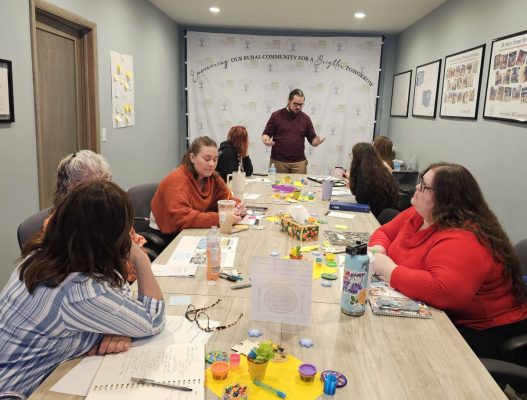
“Our collaboration has been extremely valuable,” Perusse says. “By integrating academic expertise into a community-driven model, the recovery café expands access to vital services and advances research on rural health equity and recovery-oriented systems of care. This shows how university-community partnerships can create meaningful, place-based solutions to the unique challenges of rural life.”
Marfilius says the café “creates a low-barrier, welcoming space where people can belong before they believe, reducing isolation and stigma. It complements formal treatment by offering community, continuity and stability, elements research consistently shows are critical for long-term recovery. It shows how recovery support can move beyond a strictly medical or punitive lens to something more relational, community-driven and holistic.”
Central Hub
The Camden Life Center’s location on Main Street makes it a hub for residents who might otherwise face long, inconvenient trips to access services, or even miss out on them entirely. That’s why its “wraparound care” model holds such promise, Marfilius says. “While rural residents share the same social and mental health challenges as residents of inner cities, they face unique barriers to accessing care. Urban areas are resource rich. People can walk to shelters or food pantries or catch a bus to services. Rural areas often lack transportation, internet and nearby treatment options. This center is a one-stop shop for many of those needs.”
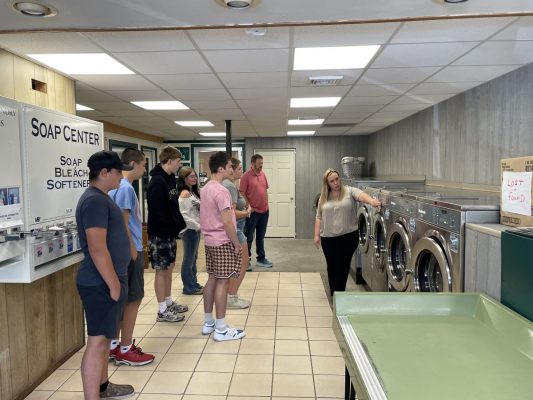
Since opening in 2019, the center has had “remarkable impact,” shown by a nearly tenfold growth in services and programming, Perusse says.
“We started with just five to 10 service requests a month. Now, we screen 50 to 60 monthly. About 65% seek mental health or addiction treatment while another 10% need help with issues like housing, food insecurity and financial support.”
She says the numbers highlight the level of community need, lowered stigma about receiving services and an appreciation for having them close by.
Broad Impact
Marfilius is planning a second phase of research to gauge participants’ use of and satisfaction with the new offerings and determine whether the recovery café model reduces loneliness and substance use, encourages healthier eating and supports lasting recovery. He will be assisted by Xiafei Wang of the University of Kentucky, who will provide data analysis. Wang, formerly an associate professor of social work at Syracuse, worked on the first phase of the project. If the recovery café is successful, the model could be scaled for broader impact across the social services fields, Marfilius says.
